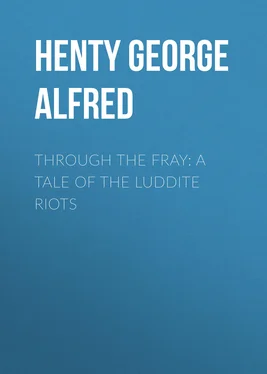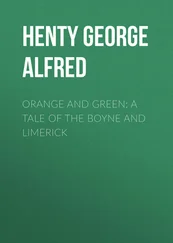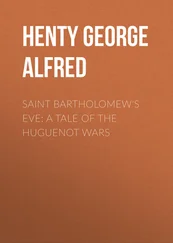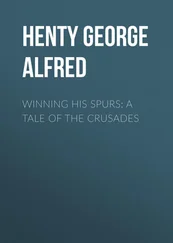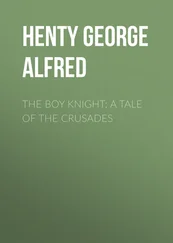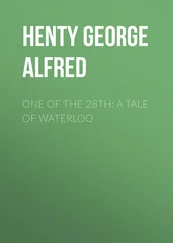George Henty - Through the Fray - A Tale of the Luddite Riots
Здесь есть возможность читать онлайн «George Henty - Through the Fray - A Tale of the Luddite Riots» — ознакомительный отрывок электронной книги совершенно бесплатно, а после прочтения отрывка купить полную версию. В некоторых случаях можно слушать аудио, скачать через торрент в формате fb2 и присутствует краткое содержание. Жанр: foreign_children, foreign_antique, foreign_prose, на английском языке. Описание произведения, (предисловие) а так же отзывы посетителей доступны на портале библиотеки ЛибКат.
- Название:Through the Fray: A Tale of the Luddite Riots
- Автор:
- Жанр:
- Год:неизвестен
- ISBN:нет данных
- Рейтинг книги:5 / 5. Голосов: 1
-
Избранное:Добавить в избранное
- Отзывы:
-
Ваша оценка:
- 100
- 1
- 2
- 3
- 4
- 5
Through the Fray: A Tale of the Luddite Riots: краткое содержание, описание и аннотация
Предлагаем к чтению аннотацию, описание, краткое содержание или предисловие (зависит от того, что написал сам автор книги «Through the Fray: A Tale of the Luddite Riots»). Если вы не нашли необходимую информацию о книге — напишите в комментариях, мы постараемся отыскать её.
Through the Fray: A Tale of the Luddite Riots — читать онлайн ознакомительный отрывок
Ниже представлен текст книги, разбитый по страницам. Система сохранения места последней прочитанной страницы, позволяет с удобством читать онлайн бесплатно книгу «Through the Fray: A Tale of the Luddite Riots», без необходимости каждый раз заново искать на чём Вы остановились. Поставьте закладку, и сможете в любой момент перейти на страницу, на которой закончили чтение.
Интервал:
Закладка:
When at twelve o’clock the boys of the first class came out from school the others crowded round to hear the result of the morning’s lessons. They looked bright and pleased.
“I think he is going to turn out a brick,” Ripon, the head of the first class, said. “Of course one can’t tell yet. He was very quiet with us and had a regular examination of each of us. I don’t think he was at all satisfied, though we all did our best, but there was no shouting or scolding. We are to go in again this afternoon with the rest. He says there’s something which he forgot to mention to us this morning.”
“More speeches!” Mather grumbled. “I hate all this jaw.”
“Yes,” Ripon said sharply; “a cane is the thing which suits your understanding best. Well, perhaps he will indulge you; obstinate idleness is one of the things he mentioned in the address.”
When afternoon school began Mr. Porson again rose.
“There is one thing I forgot to mention this morning. I understand that you have hitherto passed your play time entirely in the playground, except on Saturday afternoons, when you have been allowed to go where you like between dinner and tea time. With the latter regulation I do not intend to interfere, or at any rate I shall not do so so long as I see that no bad effects come of it; but I shall do so only with this proviso: I do not think it good for you to be going about the town. I shall therefore put Marsden out of bounds. You will be free to ramble where you like in the country, but any boy who enters the town will be severely punished. I am not yet sufficiently acquainted with the neighborhood to draw the exact line beyond which you are not to go, but I shall do so as soon as I have ascertained the boundaries of the town.
“I understand that you look forward to Saturday for making such purchases as you require. Therefore each Saturday four boys, selected by yourselves, one from each class, will be allowed to go into the town to make purchases for the rest, but they are not to be absent more than an hour.
“In the second place, I do not think that the playground affords a sufficient space for exercise, and being graveled, it is unsuitable for many games. Therefore I have hired a field, which I dare say you all know; it is called ‘The Four Acre Field,’ about a hundred yards down the road on the left hand side. This you will use as your playground during the six summer months. I have brought with me from York a box which I shall place under the charge of Ripon and the two next senior to him. It contains bats, wickets, and a ball for cricket; a set of quoits; trap bat and ball for the younger boys; leaping bars and some other things. These will give you a start. As they become used up or broken they must be replaced by yourselves; and I hope you will obtain plenty of enjoyment from them. I shall come and play a game of cricket with you myself sometimes.
“You will bear in mind that it is my wish that you should be happy. I expect you to work hard, but I wish you to play hard too. Unless the body works the brain will suffer, and a happy and contented boy will learn as easily again as a discontented, and miserable one. I will give you the box after tea, so that you can all examine them together. The second and third classes will now stay in; the fourth class can go out in the playground with the first. I shall have time to examine them while the others are doing their work tomorrow.”
There was a suppressed cheer among the boys and Ripon, as the senior, said:
“I am sure, sir, we are all very much obliged to you for your kindness, and we will do our best to deserve it.”
There was a chorus of assent, and then the elder and younger boys went out into the playground while the work of examination of the second and third classes began.
On the following day lessons began in earnest, and the boys found their first impressions of the new master more than justified. A new era had commenced. The sound of the cane was no longer heard, and yet the lessons were far better done than had been the case before. Then the whole work had fallen on the boys; the principal part of the day’s lessens had been the repeating of tasks learned by heart, and the master simply heard them and punished the boys who were not perfect.
There was comparatively little of this mechanical work now; it was the sense and not the wording which had to be mastered. Thus geography was studied from an atlas and not by the mere parrot-like learning of the names of towns and rivers. In grammar the boys had to show that they understood a rule by citing examples other than those given in their books. History was rather a lecture from the master than a repetition of dry facts and dates by the boys. Latin and mathematics were made clear in a similar way.
“It was almost too good to last,” the boys said after the first day’s experience of this new method of teaching; but it did last. A considerable portion of the work out of school was devoted to the keeping up the facts they had learned, for Mr. Porson was constantly going back and seeing that their memories retained the facts they had acquired, and what they called examinations were a part of the daily routine.
In some points upon which Mr. Hathorn had laid the greatest stress Mr. Porson was indifferent—dates, which had been the bane of many a boy’s life and an unceasing source of punishment, he regarded but little, insisting only that the general period should be known, and his questions generally took the form of, “In the beginning or at the end of such and such a century, what was the state of things in England or in Rome?” A few dates of special events, the landmarks of history, were required to be learned accurately, all others were passed over as unimportant.
It was not that the boys worked fewer hours than before, but that they worked more intelligently, and therefore more pleasantly to themselves. The boys—and there were some—who imagined that under this new method of teaching they could be idle, very soon found out their mistake, and discovered that in his way Mr. Porson was just as strict as his predecessor. He never lost his temper; but his cold displeasure was harder to bear than Mr. Hathorn’s wrath; nor were punishments wanting. Although the cane was idle, those who would not work were kept in the schoolroom during play hours; and in cases where this was found to be ineffectual Mr. Porson coldly said:
“Your parents pay me to teach you, and if you do not choose to be taught I have only to write home to them and request them to take you away. If you are one of those boys who will only learn from fear of the cane you had better go to some school where the cane is used.”
This threat, which would have been ineffective in Mr. Hathorn’s time never failed to have an effect now; for even Mather, the idlest and worst boy there, was able to appreciate the difference between the present regime and the last. In a marvelously short time Mr. Porson seemed to have gauged the abilities of each of the boys, and while he expected much from those who were able’ to master easily their tasks, he was content with less from the duller intellects, providing they had done their best.
After a week’s experience of Mr. Porson, Ned gave so glowing an account to his father of the new master and his methods that Captain Sankey went down to the school and arranged that Charlie, now ten years old, should accompany his brother. There were several boys no older than he; but Charlie differed widely from his elder brother, being a timid and delicate child, and ill fitted to take care of himself. Captain Sankey felt, however, after what Ned had told him of Mr. Porson, that he could trust to him during the school hours, and Ned would be an active protector in the playground.
It was not until a fortnight after the school began that the Four Acre Field was ready. By that time a flock of sheep had been turned into it, and had eaten the grass smooth, and a heavy horse roller had been at work for a day making a level pitch in the center.
Читать дальшеИнтервал:
Закладка:
Похожие книги на «Through the Fray: A Tale of the Luddite Riots»
Представляем Вашему вниманию похожие книги на «Through the Fray: A Tale of the Luddite Riots» списком для выбора. Мы отобрали схожую по названию и смыслу литературу в надежде предоставить читателям больше вариантов отыскать новые, интересные, ещё непрочитанные произведения.
Обсуждение, отзывы о книге «Through the Fray: A Tale of the Luddite Riots» и просто собственные мнения читателей. Оставьте ваши комментарии, напишите, что Вы думаете о произведении, его смысле или главных героях. Укажите что конкретно понравилось, а что нет, и почему Вы так считаете.
